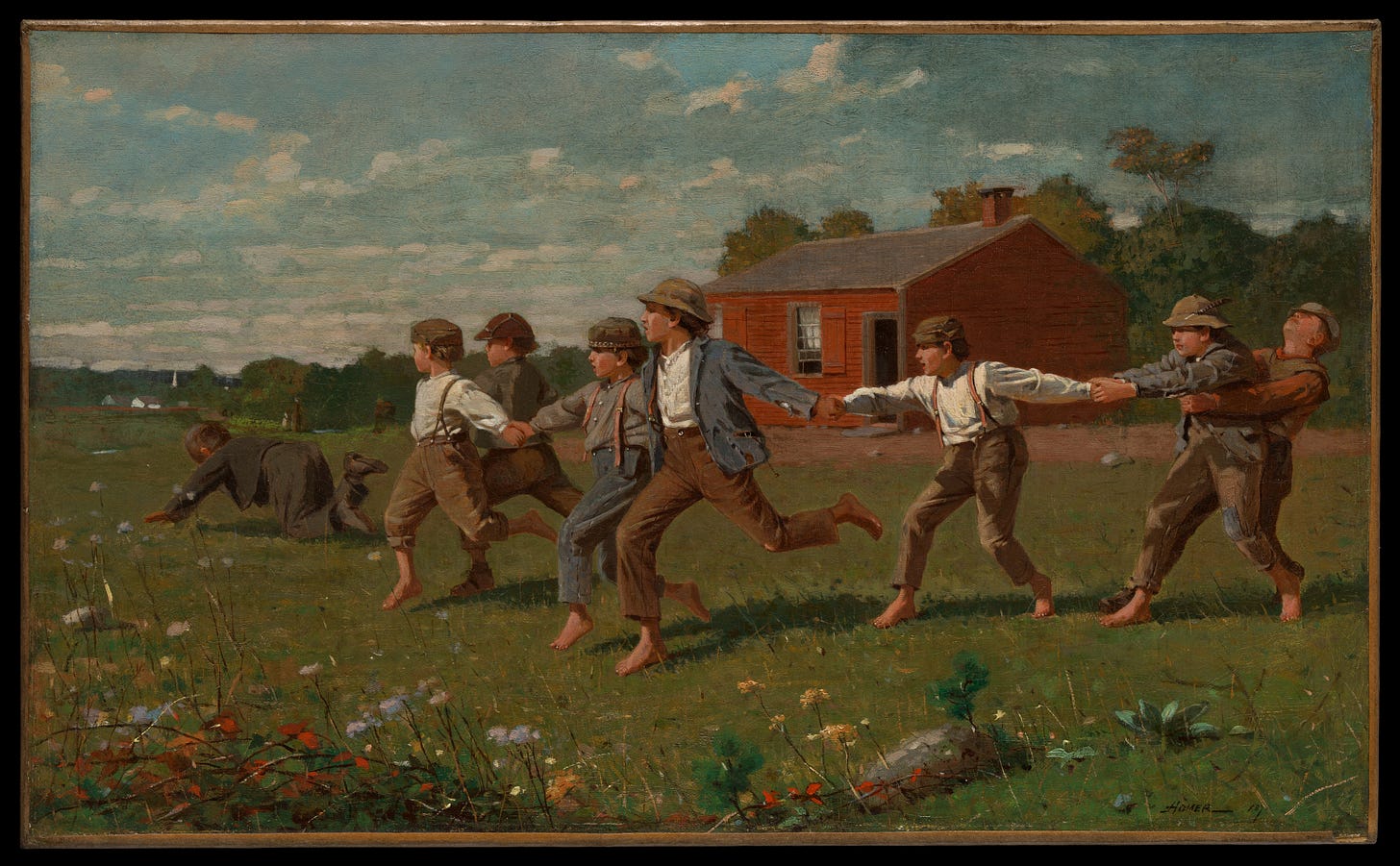the pursuit of happiness
and a wish for a good new year
The weather is settling into consistency in my part of the world. Heavy rains have given way to biting winds that blow into my living room, which is streaked with wintery sunlight. My coffee table is littered with the paraphernalia that constitute the day: a stained coffee mug, stacks of Post-its… and a copy of Mary Oliver’s West Wind, open to a page on which sits a poem that is currently looking me in the eye, asking me: “Listen, are you breathing just a little, and calling it a life?”
I answer truthfully: I don’t know.
Another poem offers what might be construed as an answer: “And I think: maybe this is the best day of my life and I think: maybe it is the best day of all lives.”
And I think: yes, maybe that’s what I would call a life. A series of the best days of all lives.
Wildly, this reminds me of Nietzsche, who asks in Thus Spoke Zarathustra: if a demon were to steal after you and say, “This life as you now live it and have lived it, you will have to live once more and innumerable times more; and there will be nothing new in it…”, would you curse the demon? Or would you call him a god for offering you something so divine?
It makes me wonder what sort of life we would have to lead to want to repeat it indefinitely. A happy life, I’m thinking. Aristotle does say that, if we look at a chain of ends, we do each for the sake of some other, higher end. We study so we can work, we work so we can earn, we earn so we can support ourselves, we support ourselves so we can indulge our interests… but if pursued for long enough, we reach the “ultimate end” of the chain, the end that is complete in and of itself and needs no further justification: Happiness.
But what does it mean to be happy? It feels a bit like asking how to catch a cloud and pin it down: everyone has ideas, but neither is convinced about the other’s.
Aristotle would say happiness is the act of living in accordance with our nature — not mere pleasure but a state of eudaemonia (a word with no direct translation, underscoring its intricate nature).
Epicurus defines happiness as friendships, reflective moment and the satiation of basic needs. In a world of increasing complexity, Epicurus tells us that happiness is found in simple pleasures.
Bertrand Russell speaks of happiness as something that emerges from affectionate relationships, from a genuine engagement with the world, painting happiness as a radiant tapestry of internal and external journeys.
Nietzsche tells us that true happiness emerges from somewhere between creation and destruction, between profound love and profound suffering.
But my favourite definition of happiness is less a definition, and more a description. It comes once again from Mary Oliver, who I have now come to see as someone with the rare ability to tenderly peel back layers of the outer world and human interiority alike:
“Sometimes, while I have stood listening to the owl’s song drifting through the trees, when it is ten degrees above nothing and life for any small creature is hard enough without that, I have found myself thinking of summer fields. Fields full of flowers — poppies or lupines. Or, here, fields where the roses hook into the dunes, and their increase is manyfold. All summer they are red and pink and white tents of softness and nectar, which wafts and hangs everywhere — a sweetness so palpable and excessive that, before it, I’m struck, I’m taken, I’m conquered; I’m washed into it, as though it was a river, full of dreaming and idleness — I drop to the sand, I can’t move; I am restless no more; I am replete, supine, finished, filled to the last edges with an immobilising happiness. And is this not also terrible? Is this not also frightening?”
It is.

“Listen, are you breathing just a little, and calling it a life?” Beautiful!